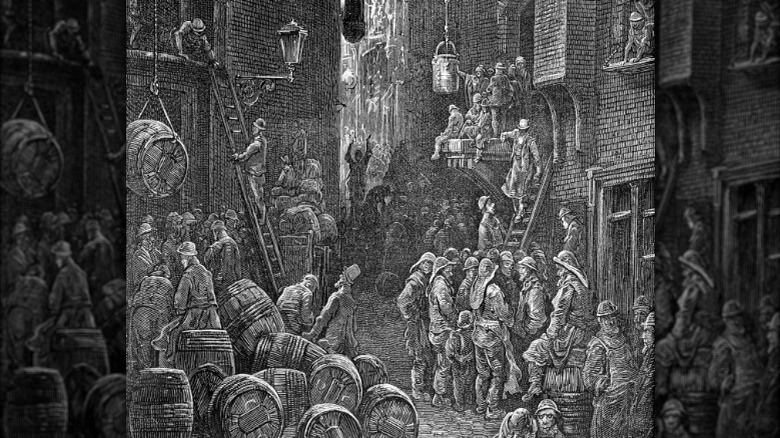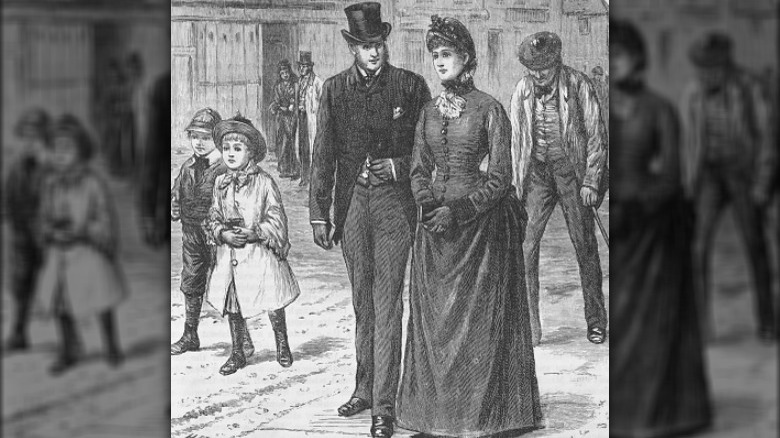The Chivalrous 'Sidewalk Rule' Has A Gross, Medieval Origin
Chivalry originated in the 11th century as a code of honor that knights had to follow to display loyalty, generosity, and bravery. Later on, it became the qualities expected of gentlemen who were part of high society (via Getty Museum). Today, men display chivalry in many different ways, such as opening doors, offering seats, or offering a coat in cold weather. Generally, these acts are seen as a sign of graciousness and respect, but as noted by This is Gendered, the actions may also suggest that women aren't capable of taking care of themselves, and they need men to do things for them or protect them.
One of the most common things men do for women today to show chivalry is to stay on the streetside when walking with women. This is meant to protect the lady from passing vehicles or splashes from street puddles. It may seem like a simple act today, but it has a gross origin that dates back to medieval times.
The lack of proper sewage
Before the development of proper sewage systems, streets were littered with all sorts of waste during medieval times. According to Today I Found Out, it was common for citizens to just dump their waste on the streets, and that includes fecal matter. It was a time when people didn't associate human waste with the spread of diseases. Because of the accumulation of waste and the nasty smells, there were eventually laws put in place to prevent citizens from leaving their waste on the streets. By the 14th century, Londoners who were caught leaving all types of waste on the streets were ordered to pay a fine. Apart from waste, there were also carcasses of dead animals and all sorts of litter. Gong farmers were eventually employed to clean out cesspits.
As reported by Technology, the streets smelled so bad that people walked while holding handkerchiefs doused in perfume over their noses. Others also wore pattens — shoe coverings made of wood and metal — to protect their footwear from getting soiled in waste. Pattens had elevated outsoles and were specifically crafted for protecting shoes against mud, dirt, and waste on the streets.
Gentlemen risked being covered in human waste
With chamber pots typically emptied on the streets, a gentleman who wanted to win a woman's affection by acting chivalrous knew what he was getting into. Every time they walked down streets, they risked getting splashed or drenched in human and animal excrement and other waste materials. As noted by Technology, the act pleased the women. It was flattering to have a gentleman willing to get soiled to protect a lady.
An incident in London, called The Great Stink, was the catalyst for developing a better sewage system. In 1858, the stench coming from the River Thames was at its highest, and it was made worse by the summer heat. According to The Guardian, politicians came to a consensus that a proper sewage system needed to be built to get rid of the foul smell and the spread of diseases. Interconnecting sewage tunnels were built underneath London, and the entire project was completed in the 1870s. Thanks to the development, chivalrous gentlemen no longer had to be showered with waste just to impress women.


